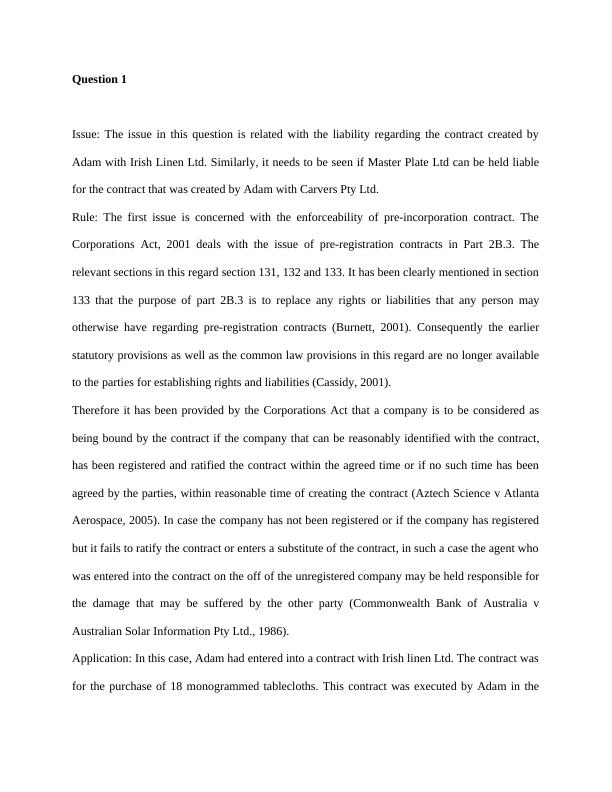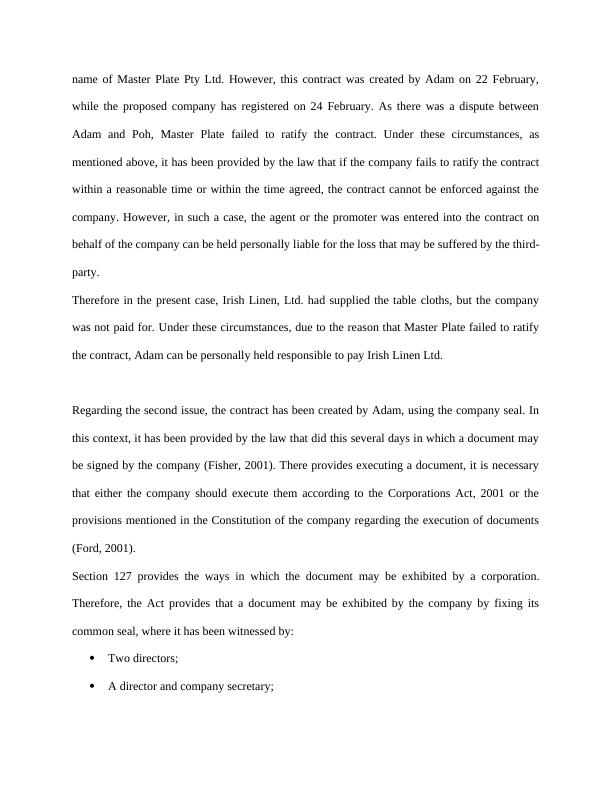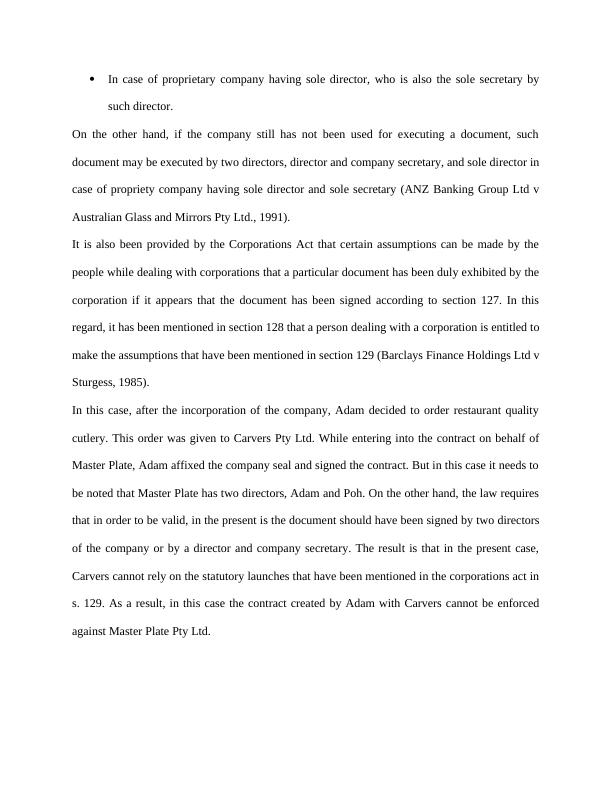Liability of Master Plate Pty Ltd and SwimmingPool Co Ltd: Analysis of Agency Law
This is a group assignment for the course HI6027 BUSINESS & CORPORATIONS LAW. It consists of a 2,000 word written report and an 8-10 minutes presentation. The assignment is due in Week 10.
8 Pages2405 Words146 Views
Added on 2023-06-04
About This Document
This article discusses the liability of Master Plate Pty Ltd and SwimmingPool Co Ltd under the law of agency. It analyzes the enforceability of pre-incorporation contracts, the responsibility of principals for the actions of agents, and the duties of agents towards their principals. It also provides relevant case laws and legal rules to support the analysis.
Liability of Master Plate Pty Ltd and SwimmingPool Co Ltd: Analysis of Agency Law
This is a group assignment for the course HI6027 BUSINESS & CORPORATIONS LAW. It consists of a 2,000 word written report and an 8-10 minutes presentation. The assignment is due in Week 10.
Added on 2023-06-04
ShareRelated Documents
End of preview
Want to access all the pages? Upload your documents or become a member.
Contract and Corporation Law
|15
|622
|483
Case Study on Breach of Contract and Corporate Law
|10
|2460
|128
Corporate group structures
|5
|1175
|20
Corporation Act and its Application in Case Studies
|8
|1802
|105
Company Law Assignment Corporation ACT 2001
|3
|1710
|357
Business and Corporate Law: Case Analysis and Legal Principles
|10
|818
|70



